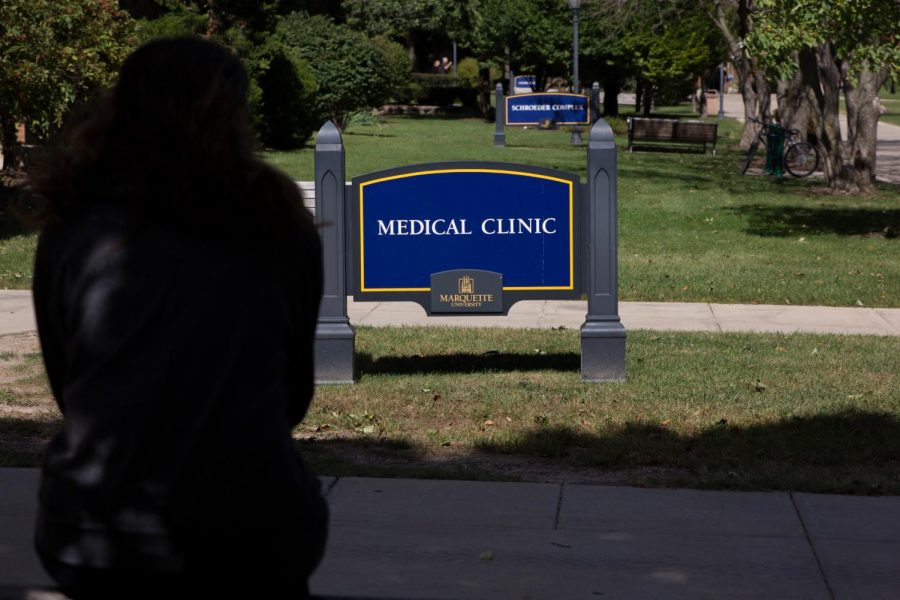“I think I’m having a mental breakdown,” I sob into the receiver of my cell phone. It is the morning after my fifth consecutive night without sleep. The sun is rising and normally the soft, dry light would embolden me. But today, I am only exhausted. I can do nothing else but cry and curl into myself and beg the universe for the simple comfort of rest.
I did not notice my body disappearing. I never appreciated the hard work my lungs were doing or the sprints my heart was running every day. I could not see my angles sharpening, my curves receding.
Before I move further into the abstract, let me explain.
I was wholly alive going into 2018. I was starting a new job, taking classes I enjoyed and falling back into the comfortable home I had carved out for myself at this university. I felt confident and powerful and proud. And then I stopped sleeping.
Sleep has always been a point of contention between my mind and every other part of me. Insomnia is cyclical, and I was prepared to handle a fleeting bout of sleeplessness. But this time, the sleep did not cycle back.
Next, I lost my appetite, and with it, my sharp focus. I lost weight. My breathing strained. My muscles were constantly fatigued after even short bursts of exertion. And yet, I saw no practical difference. When you grow out your hair, you never see the changes day to day, only over time. When your body starts consuming itself, it feels much the same.
When these warning signs did finally move out of the periphery and into the unavoidable center of my world, I did not believe my body. I told myself it was all in my head. I was making myself sick. I believed I was giving myself excuses to be lazy, because if I was sick, that would mean going to the doctor, which was not something I could afford. I was barely in a position to pay my rent.
For most of my life, my medical bills were covered by the government-funded Children’s Health Insurance Program, but when I turned 19 years old, I no longer qualified for the aid. Mental health concerns that had begun emerging around this time, as they often do in a person’s late teens and early 20s, were relegated backward. The loss of my health insurance also meant the loss of my ability to treat those concerns with any intention or regularity, which took its own, separate toll.
When symptoms cropped up in April, it was easier to pretend they were not there at all. In just that one month, I dropped 20 pounds. I slept only two or three nights a week. I rarely left my apartment because I could not physically climb the stairs from the second to the first floor and back up again.
I spent the night leading up to the morning I finally acknowledged I was not alright sobbing into my pillow, contorting and rearranging my frame into positions I hoped would lead to sleep. When the sun came up and I realized it would be another full day before I got the chance to try again, my body revolted. I had never had a panic attack. It felt like every tissue and each of my bones was shifting in place. I thought I’d swallowed a razor blade in my sleep or that I was having a heart attack.
Desperate, I called a relative who I knew was going to be in Milwaukee the next day. I told her I thought I was losing my mind, that I was dying. She told me to get some sleep, like it was easy.
Of course we can’t expect other people to understand events that occur internally. She had no way of knowing.
The point of this story is to explain what it feels like to navigate an illness without the institutional support of health insurance. The big takeaway should be denial, in that, when I got sick, I had to convince myself I was not. Eventually, my family got me to a doctor, and I did begin to feel normal again. But I am not as healthy as I was before, and I worry that this, too, is cyclical, that my brain will come back for my body and finish what it started.
Security has always felt like an abstraction to me, and I will always want more of it than I have. But the purpose of this essay is not to reflect on my own experiences, but more to say here I am, this is my life, and somebody you know and care about might be in a similar situation, and they might not explain to you what is happening in their lives because you might not ever ask.
There is no reason anyone would know that while dealing with the physical toll of an illness, I was also dealing with its financial implications. It’s not something that comes up unless I bring it up myself. I do now, often.

